Visa-free coercion: how can Ukraine achieve the supply of Israeli air defense systems?
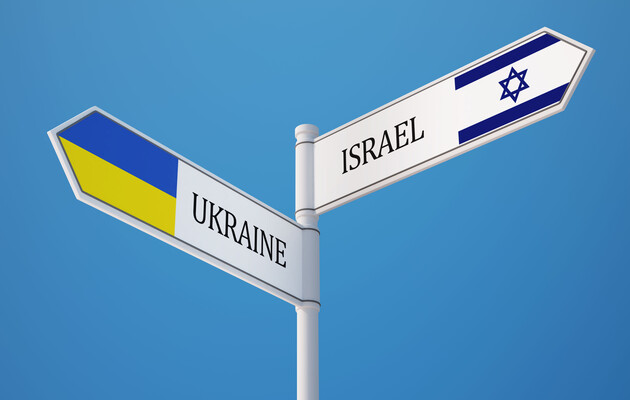
In relations between Ukraine and Israel, another heat of passion is observed. This time, because officials in Kyiv are threatening to suspend the visa-free regime and are considering asking Western partners to remove the country from the list of members of the Rammstein contact group on the defense of Ukraine. However, in Tel Aviv, officials are still skeptical about this information in the media: they believe that Kyiv is simply putting pressure on the Israeli government and will not move from threats to action.
Today, it really looks unlikely that Tel Aviv, which has Washington's support behind it, will be excluded from Rammstein. Although Kyiv has reason to demand this, since Israel, unlike, for example, Morocco and Kenya, not to mention the United States of America and Germany, does not provide Ukraine with any military assistance. Tel Aviv does not send instructors to our country, does not send ammunition and does not supply air defense systems. As part of Ramstein, the Israeli defense minister does not meet with his Ukrainian counterpart, preferring his American one.
But as for the suspension of the visa-free regime with Israel, on the eve of the celebration of September 15-17 Rosh Hashanah - the Jewish New Year - Kyiv may well realize its threat: politicians on Bankova Street are determined about this issue.
Ukraine is tired of the fact that the Israeli side is delaying the fulfillment of the obligations assumed during the visit of the Israeli Ministry of Foreign Affairs Eli Cohen to Kyiv. In particular, there is no progress in assisting our country in demining, increasing the number of wounded Ukrainian soldiers admitted for treatment, state guarantees in the amount of more than $200 million for Israeli projects in the field of healthcare and civilian infrastructure.
In Ukraine, officials are also outraged by the discrimination against Ukrainian citizens, who, upon arrival in Israel, expect many hours of interviews with representatives of Israeli law enforcement agencies, as a result of which our citizens are often deported from the country. It is worth noting that, according to Ukrainian data, every tenth Ukrainian who arrived is not allowed to enter Israel.
For Ukrainians, an unpleasant surprise was the decision of the Israeli authorities to deprive them of free medical care. This happened, allegedly due to uncoordinated actions of the Ministry of Social Security, the Ministry of Finance and the Ministry of Health of Israel. Only after a conversation between Dmytro Kuleba and Eli Cohen did the situation seem to be resolved: the head of the Ukrainian Foreign Ministry said that "health insurance for Ukrainians in Israel will remain, the problem will be resolved in the near future."
With such a state of Ukrainian-Israeli relations, it is not surprising that the Israeli ambassador to Ukraine, Michael Brodsky, has not been invited to the presidential office for a month now, where they periodically meet with the ambassadors of a group of countries friendly to Ukraine.
And yet, politicians in Kyiv hope that Tel Aviv will also become more actively helping our country in repelling Russian aggression, not limited to “humanitarian aid”, in particular, by providing medicines, but by supplying Ukraine with military equipment. It is precisely the threat of the Ukrainian side to suspend the visa-free regime that should push Benjamin Netanyahu to make such a decision: Kyiv now has a small window of opportunity, which will close in a month.
The fact is that the Netanyahu government includes, including representatives of ultra-religious parties. And the Ukrainian authorities, seeking to push Tel Aviv to supply arms to Ukraine, are thinking about taking a decisive step. Moreover, Kyiv has formal grounds to suspend the visa-free regime.
First, Ukraine cannot ensure the safety of the pilgrims who will come to the city of Uman to visit the tomb of Tzadik Nachman to celebrate Rosh Hashanah, as there is a war going on and Russia is firing rockets at Ukraine. Recall that last year about 23,000 Hasidim came to Ukraine to celebrate Rosh Hashanah, and the Russians shelled the city of Uman on the eve and after the celebration of the Jewish New Year.
Secondly, ensuring the safety of thousands of pilgrims distracts a large number of firefighters and policemen, whose presence in times of war is necessary in other places. Israel itself, after the start of the Russian-Ukrainian war, stopped sending its policemen to help and protect the city of Uman.
Thirdly, under martial law, mass gatherings are prohibited, even during holidays.
In accordance with Article 7 of the intergovernmental Ukrainian-Israeli agreement on a visa-free regime, for the sake of protecting public order, national security and public health, Kyiv can suspend the document for 30 days. Political leaders in Kyiv simply have to notify Tel Aviv 48 hours in advance. Formally, the decision to suspend the visa-free agreement should be taken by the Cabinet of Ministers of Ukraine at the request of the Ministry of Foreign Affairs of Ukraine or the Ministry of Internal Affairs of Ukraine. In fact, the president of Ukraine and his office.
The question is, will the problem of Hasidic pilgrimages put serious pressure on the position of members of the ruling coalition and what will Netanyahu agree to in order to prevent the suspension of the visa-free regime during Rosh Hashanah? Make a phone call to Zelenskyy? Come to Ukraine? Will he decide to give Ukraine Barak-8 air defense systems to protect against ballistic missiles? These air defense systems would not be superfluous for our country at all. In addition, this air defense will be useful to us both in order to protect Ukrainian citizens from Russian missiles and Iranian drones, and in order to prevent the death of Israeli pilgrims.
There is little chance that the threat of visa-free travel for pilgrims will force Netanyahu to start sending us military aid. Tel Aviv traditionally explains the lack of a decision on the supply of military equipment to Kyiv both by fears that these weapons will fall into the hands of terrorists, and by Moscow’s strong position in the Middle East region: Russia can destabilize the situation on Israel’s borders, threaten Israeli operations in Syria, etc. In addition, Tel Aviv fears for the fate of the Jews in Russia.
But Jews living in Ukraine face a far greater danger from Russian missiles. And Netanyahu must choose between two bowls: on the one, Israel's special relationship with Russia; on the other, the lives of compatriots living in Ukraine and Israelis making a pilgrimage to the city of Uman.
Read this article in Ukrainian and russian.
Please select it with the mouse and press Ctrl+Enter or Submit a bug












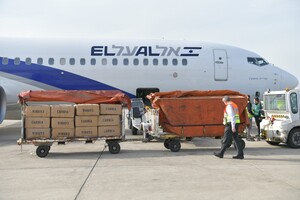
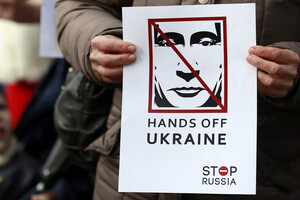
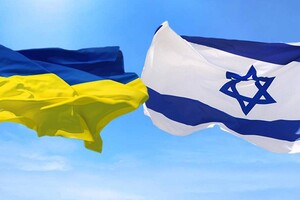
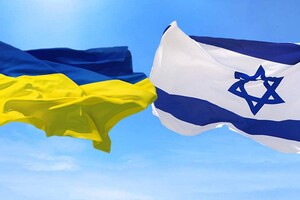
 Login with Google
Login with Google